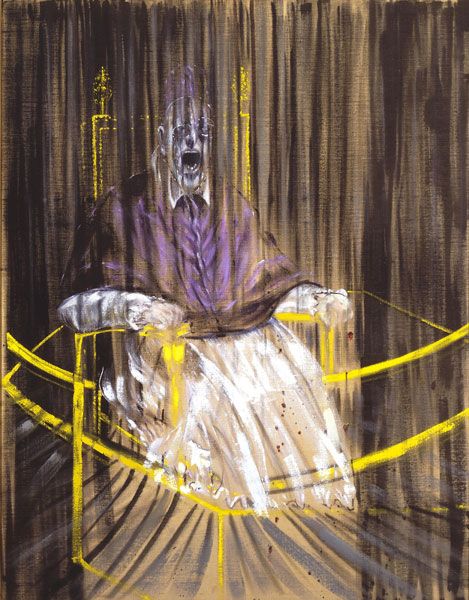
Assertions must be documented and proven: not merely insinuated. Even an otherwise good and thoughtful writer like Carl Olson can (in the current toxic atmosphere) casually toss out the accusation that Pope Francis wishes to convey in his new Exhortation, the notion that “rules, boundaries, limits, dogma, and tradition are almost always impediments.” One can only shake one’s head in perplexity and move on to the next charge being made . . .
Carl then cites a paragraph and records papal critic Sandro Magister’s judgment upon it: that it “seems to wipe out two millennia of contemplative monasticism, male and female.” I hardly think that is likely. It’s yet another hysterical, extreme conclusion (made in the service of opposing alleged extremity) rendered about something or other in the Holy Father’s writing, that is misunderstood and misinterpreted. But of course, the problem must be in the alleged heterodoxy and lack of clarity (and increasingly now, good ol’ “deliberate ambiguity”) in the pope’s writing; never ever in the wrong assumptions and hostile presuppositions that the nitpicking or bashing interpreter of the writing brings to the table.
Carl informs us that “these sort of personal jabs are very much in keeping with Pope Francis’ personality and style.” That may be. Pope Francis is not perfect, and we are not promised impeccability in popes. He certainly has any number of faults, even glaring ones (though it is a separate and quite arguable issue whether we should be carping on and on about them in public). But it’s also true that the same shortcomings are seen (in my opinion, far more) in the papal bashers and nitpickers. After all, Carl has accused the pope in this article of caring little about dogma and tradition, or “two millennia of contemplative monasticism”.
My point, in conclusion, is that while I certainly have benefited in some ways from reading Gaudete et Exsultate, the good qualities and substantive passages in documents and texts such as this are increasingly overshadowed, or even undermined, by the grave tensions and growing conflicts within the Church.
Especially since, sadly, Pope Francis and his closest collaborators have not only failed to address those tensions and conflicts, they have played a significant role in exacerbating and deepening them. They do appear to be take pleasure in “taking aim” at Catholics they deem to be too dogmatic, rigid, and focused on liturgy. It is a shame that this has continued in this apostolic exhortation on holiness but it is not, I’m sorry to say, too much of a surprise.
*
If someone wants to think and act (in terms of this criticism of the pope; not all respects) like 1) a Protestant opposer of Catholic ecclesiology and the rule of faith, and/or 2) a cafeteria Catholic: picking and choosing arbitrarily what to like and dislike, I can’t stop them. But I can sure inform them — and my readers — that this is indeed the way they are acting, and that these tendencies and mentalities and mindsets did not come from nowhere. They have a long, unfortunate pedigree.
***
Addendum: Responses and My Counter-Replies (words of others in blue)
Carl Olson replied in the combox for this post:
“Thus we are informed in the title of Carl’s article in Catholic World Report that Pope Francis “misses” with his Apostolic Exhortation, Gaudete et Exsultate. Maybe we shouldn’t even read it then, huh? Why waste our time?”
I’m surprised, Dave, that you didn’t “get” the headline, which is quite obviously playing off the opening section about Fr. Martin’s quote. For what it’s worth.
“How could we get through the day without having Carl E. Olson nitpicking to death and picking away at an Apostolic Exhortation from a pope?”
An example of why it’s hard for me to take these sort of posts seriously.
Yeah, it was playing off of Fr. Martin. But it’s also in the title, and it is unseemly in and of itself.
Ah, so if I dare use a bit of sarcasm (something, of course, you yourself never ever do!), that allows you to dismiss the entire thing and avoid dealing with the many non-sarcastic, “serious” critiques in it. Nice move there.
My approach remains what I wrote a few minutes ago on my Facebook page: “I’d love to have a good, honest, open, civil discussion on these matters with Carl or anyone else who wishes to do that.”
Your reply here makes that goal appear quite a bit less likely, but I still hold out hope.
**
[the following is from the combox of Carl’s article for The Catholic World Report. I simply left a link for my critique. If Carl hadn’t unfriended me on Facebook, I wouldn’t have even done that. I was just letting him know, out of courtesy]
Fr. Peter Stravinskas: I am afraid to have to disagree with you mightily. Francis missed a golden opportunity to build a bridge with this document: 90% of it is good and solid traditional Catholic spirituality. Then, like Trump, he can’t resist broadsides on his real/perceived enemies and goes on the attack. The Left will have no truck with the traditional spirituality; the Right will dismiss it all because of his dismissive attitude toward them/us.
Hi Fr. Peter,
Always good to hear from you! Hope you are well these days.
I don’t see that he is attacking people; rather, false ideas and tendencies. He’d have a long, long way to go to equal the vehemence in which St. Paul criticized the Galatians and Corinthians, or the fiery sarcastic rebukes of our Lord towards the scribes and Pharisees. So I see it as simply following the biblical model.
Such rebukes were controversial then and remain so today because no one likes to be criticized or told they are wrong. It’s almost the cardinal sin in our current postmodern secular society.
I don’t view the Holy Father as “against” myself or anyone else as people. I see him as on my side: telling me hard truths and timeless truths in a fresh way.
God bless,
Dave
**
Paul: Your critique of the article is pathetic. What sort of neurotic egomaniac would advertise his infantile tantrum on this web site?
Sol: One relative papal maximalist hasn’t given up yet!
Timothy J. Williams: narcissist… like all the Patheticos “writers”…
Chris C.: I read it. The title says all one needs to know about what to expect. Whereas Carl’s piece is a serious attempt at an objective critique of the Pope’s work, the “review” by Dave is replete with personal barbs and ad hominem and little else. One won’t actually find an accurate and fair portrayal of Carl’s work in it.
The same old same old, when anyone dares to disagree in a combox. Only Fr. Peter (who graciously gave me my first break as a Catholic writer in 1993) disagreed with me without personal attack.
I didn’t “attack” Carl Olson. I disagreed with his position. There is a difference. In fact, I said “I like his writing a lot” and that “He’s written several great books” and that he was a “good and thoughtful writer” and a “good man and good Catholic.” That’s a lot of compliments in a critique!
As usual (and almost always), — apart from Fr. Stravinskas — there is not one single substantive, reasoned interaction with anything I have written. It’s 100% ad hominem attacks.
The combox contains this note:
All comments posted at Catholic World Report are moderated. While vigorous debate is welcome and encouraged, please note that in the interest of maintaining a civilized and helpful level of discussion, comments containing obscene language or personal attacks—or those that are deemed by the editors to be needlessly combative or inflammatory—will not be published. Thank you.
Thus the above attack-comments all passed muster, and were thought by the moderator to be helpful and civilized, not personal attacks and not combative or inflammatory. This is how things go today. Like I’ve been saying over the past year or so: Dialogue is Dead. It’s certainly deader than a doornail in that combox.
***













